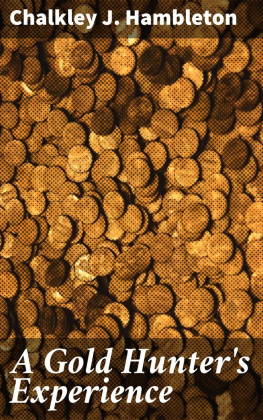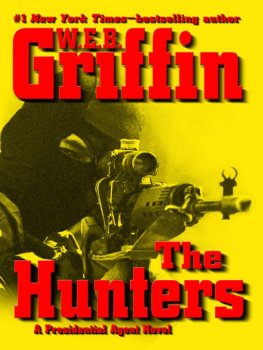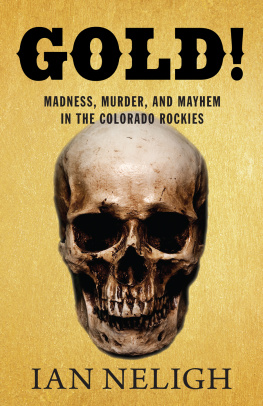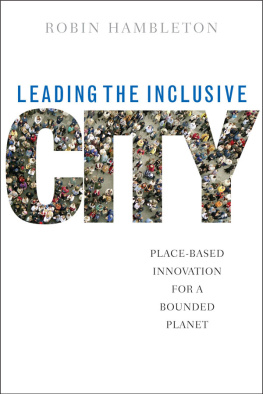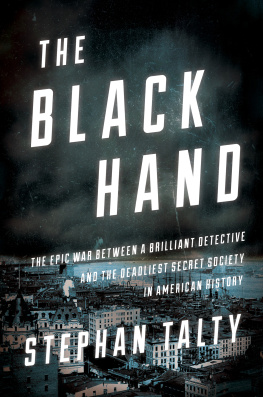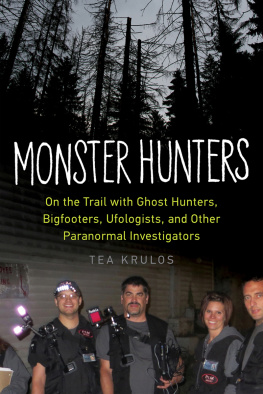"
Early in the summer of 1860 I had a bad attack of gold fever. In Chicago the conditions for such a malady were all favorable. Since the panic of 1857 there had been three years of general depression, money was scarce, there was little activity in business, the outlook was discouraging, and I, like hundreds of others, felt blue.
Gold had been discovered in the fall of 1858 in the vicinity of Pike's Peak, by a party of Georgian prospectors, and for several years afterward the whole gold region for seventy miles to the north was called "Pike's Peak." Others in the East heard of the gold discoveries and went West the next spring; so that during the summer of 1859 a great deal of prospecting was done in the mountains as far north as Denver and Boulder Creek.
Those who returned in the autumn of that year, having perhaps claims and mines to sell, told large stories of their rich finds, which grew larger as they were repeated, amplified and circulated by those who dealt in mining outfits and mills. Then these accounts were fed out to the public daily in an appetizing way by the newspapers. The result was that by the next spring the epidemic became as prevalent in Chicago as cholera was a few years later.
Four of the fever stricken ones, Enos Ayres, T. R. Stubbs, John Sollitt and myself, formed a partnership, raised about $9,000 and went to work to purchase the necessary outfit for gold mining. Mr. Ayres furnished a larger share of the capital than any of the others and was not to go with the expedition, but might join us the following year. Mr. Stubbs and I were both to go, while Mr. Sollitt was to be represented by a substitute, a relative whose name was also John Sollitt, and who had been a farmer and butcher and was supposed to know all about oxen. Mr. Stubbs was a good mechanic, an intelligent, well-read man, and ten years before had been to California in search of gold.
Our outfit consisted of a 12-stamp quartz mill with engine and boiler, and all the equipments understood to be necessary for extracting gold from the rock, including mining tools, powder, quicksilver, copper plate and chemicals; also a supply of provisions for a year. The staple articles of the latter were flour, beans, salt pork, coffee and sugar. Then we had rice, cornmeal, dried fruit, tea, bacon and a barrel of syrup; besides a good supply of hardtack, crackers and cheese for use while crossing the plains, when a fire for cooking might not be found practicable. These things were all purchased in Chicago, together with the fourteen wagons necessary to carry them across the plains. Then all were shipped by rail to St. Joseph, Mo., where the oxen were to be purchased. The entire outfit when loaded on the cars, weighed twenty-four tons.
I stayed in Chicago till the last to help purchase and forward the outfit and supplies, while Stubbs and Sollitt (the substitute) went to St. Joe to receive and load them on the wagons and to purchase the oxen.
On the 1st day of August, all was ready, and we ferried our loaded wagons and teams across the Missouri River into Kansas to make a final start next morning into regions to us unknown. Stubbs started the same day by stage for the mountains, to prospect and look out for a favorable location and then to meet the train when it arrived at Denver. Sollitt was to be trainmaster, which involved the oversight and direction of the teams and drivers, and the duty of frequently going ahead to pick out the best road and select a favorable place to camp at night, where water and grass could be had. I was the general business man of the expedition, had full power of attorney from Mr. Ayres to represent and manage his interest, and hence I had the control and responsibility in my hands and practically decided all important questions relating to the business.
The fourteen ox-drivers were all volunteers, who drove without payexcept their boardfor the sake of getting to the gold regions to make their fortunes there. Most of them were from Chicagothree married men who left families behind, and one a young dentist. Another was the son of a prominent public woman who was a rigid Presbyterian, and when I left Chicago his father gave me a satchel full of religious books to give to him in St. Joe to read on the plains. He deliberately pitched them into a loft, where they were left. Another was a young Illinois farmer, named Tobias, a splendid fellow. Among those we secured in St. Joe were one German and two Missourians.
The principal article in the outfit of each individual, aside from his ornaments in the shape of knives and pistols, was a pair of heavy blankets. One of the Missourians first appeared without any, but next morning he had a quilted calico bed cover, stuffed with cotton, borrowed probably from a friendly clothesline, and which, at the end of the journey, presented a very dilapidated appearance.
Early in the morning of August 2d all were busy yoking oxen and hitching them to the wagons, but as most of the drivers were green at the business and did not know "haw" from "gee," and a number of the oxen were young and not well broken, it was several hours before our train was in motion and finally headed for "Pike's Peak." The train consisted of fourteen wagons, a driver for each, forty yoke of oxen, one yoke of cows and one pony with a Mexican saddle and a rawhide lariat thirty feet long, with an iron pin at the end to stick in the ground to secure the animal.
For the first two or three miles, while crossing the level valley, all went well, but when we reached the bluffs and ravines that bounded the river valley on the west, the green oxen began to balk and back and refused to pull their loads up the hills, and the new drivers were nonplused and helpless. The better teams went ahead and were soon out of sight, while the poorer ones had to double up, taking one wagon up a hill and then going back for another, and consequently made slow progress. Instead of riding or walking along like a "boss" at ease, I soon found myself fully occupied in whipping up the poorly broken oxen on the off side, while the green drivers whipped and yelled at those on their side of the team. It was surprising how soon the nice city boys picked up the strong language in use by teamsters on the Western plains. The teams got separated, and the train stretched out two or three miles long. Then Sollitt rode ahead, picked out a camping place, and directed the drivers to halt and unyoke as they reached it; but when it became dark three or four teams were still from a quarter of a mile to a mile behind, and in trouble, so they unhitched the oxen and let them run in their yokes for the night. Our lunch and our supper that day consisted of crackers and cheese, as we had no time to cook.
About dark a shower came up, and it drizzled a good part of the nightthe last rain we met with for many weeks. We rolled ourselves up in our blankets on the ground, under the wagons or in a small tent we had, for sleep. At daylight next morning we all started in different directions through the wet bushes that filled the ravines to find the scattered oxen, and before noon they were all collected at camp. We had hot coffee and some cooked things for breakfast. But several accidents had occurred. The cows had fallen into a gully with their yoke on and broken their necks, one load of heavy machinery had run down hill and upset, one axle, two wagon tongues, one yoke and some chains were broken. Sollitt, with two or three of the drivers who were mechanics, went to work to repair damages. As we seemed short of oxen, I rode back to St. Joe and bought two yoke more, spending the last of our money except about fifty dollars.


